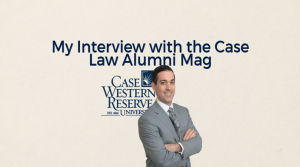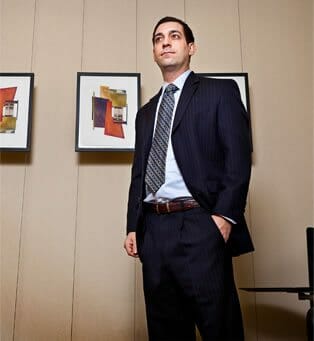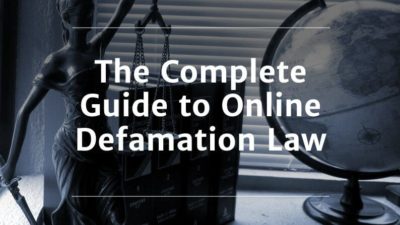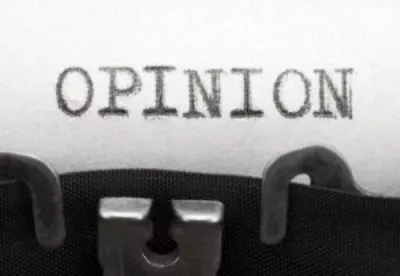
“The Reputation Protector” – My Interview with the Case Law Alumni Mag
This page has been peer-reviewed, fact-checked, and edited by qualified attorneys to ensure substantive accuracy and coverage.
The following is a re-post of my interview published in the Fall 2014 edition of InBrief, the Case Western Reserve Alumni Magazine. It can be found at the following URL: https://law.case.edu/Alumni/InBrief/Articles/TabId/799/ArtMID/1766/ArticleID/585/The-Reputation-Protector.aspx
THE REPUTATION PROTECTOR

Little did he know that he’d eventually find himself – not in corporate board rooms working on business transactions – but rather, sifting through some of the most perfervid websites on the internet, such as RipoffReport.com and MyEx.com, to remove derogatory information for his clients.
“I deal with problems that can’t be ignored, situations where the malicious information affects people’s lives, or their businesses in very consequential ways. My clients need the content removed,” Minc said. “Sometimes they call me crying, begging me to help them.”
Minc, an attorney with firm of Minc Law in Cleveland, is one of only a handful of lawyers in the country who specialize in defamatory information removal. While many web users see the bright side of the information boom, Minc combats the dark: the websites that profit directly by spreading derogatory content about others. To make matters worse, some of the sites have policies in which the information will never be removed.
“I could go on RipoffReport.com and post something that is blatantly false. And it doesn’t matter how false it is, it will never come down,” Minc said.
But there is relief for individuals or businesses who find themselves in these situations. In fact, Minc is so confident in his abilities he often guarantees removal “or your money back.” In just the two years that he has been focused on this area of law, Minc has helped hundreds of clients across the country and refined his craft to a near scientific level.
It all started with one client. Not too long after graduating from law school, Minc took a job representing an entrepreneur who got into a dispute with someone he did business with. The businessman posted defamatory information on RipoffReport.com, and the content popped up high on a Google search of the entrepreneur’s name.
“It was affecting his ability to continue to do business,” Minc said. “I was the first attorney he hired who was able to help him.”
Minc successfully obtained a court order to have the information removed from a Google search, and he followed the same process with other major search engines. After tracking down and confronting the author of the information, Minc was able to secure a settlement for the defamation lawsuit after the first deposition.
Inspired by his ability to do something his client’s previous attorneys could not, Minc wrote a blog post about his case.
“It was a really poor blog article, and I got a few calls just from that,” Minc joked, as he recalled his early beginnings. “I started getting more and more clients, and it has just taken off from there.”
Minc has since refined his public writing, and his new blog – www.minclaw.com – receives over 3,000 unique hits per month. He fields anywhere from 40-50 inquires per week, and has even been approached about potentially appearing as a guest for a reality TV show and a national news network.
“The internet is always going to expand. I don’t see it dying down anytime soon unless current federal law changes,” he said.
The law that allows websites like RipoffReport.com and TheDirty.com to exist is referred to as Section 230 of the Communications Decency Act (CDA). According to the act, interactive websites (which is most websites) cannot be held legally responsible for the content they carry, because users and not the sites themselves post the material.
Minc has found remedies for clients who have been smeared. There are exceptions to the CDA, such as criminal law and copyright law violations, among others. Authors of the content may also be confronted and sometimes convinced to remove the malicious information. Websites may also have terms of use and policies that users are expected to abide by and may voluntarily remove information.
In cases where the author is unknown and/or unable to remove the information and the website is unwilling to remove it, Minc works to obtain a court order to remove specific website URLs from search engine results, making it much more difficult – if not impossible – for anyone to find the information in the future.
“There are a lot of people out there who have things said about them on the internet that they don’t like,” Minc said. “It happens to people in all walks of life. It’s a real issue now, and it’s everywhere.”
The Dark Side of the Internet: How to Remove Bogus and Defamatory Online Content
Welcome to the new age of the Internet. Unbeknownst to many, an entire new industry has taken foothold online, which profits solely by spreading derogatory statements, malicious content, and other private information about people’s affairs.
Websites like Thedirty.com, RipoffReport.com, Cheaterville.com, Scam.com, Jerk.com, PissedConsumer.com, and literally thousands of others like them are quickly establishing themselves as places people can go to gripe, smear, and publish negative and derogatory information about individuals and businesses alike…
To schedule a free, no-obligation initial consultation with an intake specialist, call (216) 373-7706 or schedule a meeting online by filling out our online contact form.
★★★★
“They were very understanding. They did not judge me and they were very helpful. It gave me peace of mind to have someone who I could turn too in a stressful situation.”
Jordan Fong, January 7, 2022



